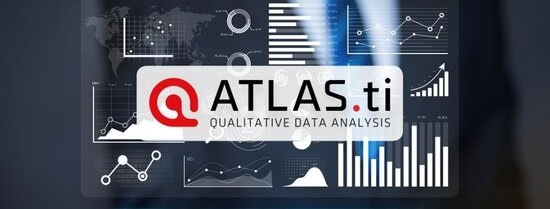Introduction
Key terms: qualitative research, coding textual data, inductive, ATLAS.ti, introductory course, relevant for students in any PhD phase
ECTS: 1.5
Number of sessions: 1
Hours per session: 5
Do you have a big dataset with interview transcripts, media content or other material which you need to analyse qualitatively without getting lost in all the details?
In this course you will learn how to code data to get grip on large datasets. Coding data means giving labels to pieces of data. The applied codes can be subsequently used for an analysis of the contents of the dataset.
Coding can be done with visual, audiovisual or textual data. The course focuses on textual data. Specifically, we will discuss how such data can be coded inductively (bottom-up, based on what the data is about), which is typical of qualitative research.
Various tools are available to support the coding process. In this course, you'll learn how to code data with ATLAS.ti. We will discuss how such programs help with systematising the analysis, and producing comprehensive and in-depth findings.
The course includes lectures, discussions, and hands-on exercises. Participants are not required to bring their own data. To facilitate exercises and class discussions, participants will practice with the same dataset that will be provided by the lecturer.
However, throughout the course, participants are encouraged to ask questions related to the coding and analysis of their own research.
Entry level and relevance
This course is accessible to researchers who are not familiar with qualitative coding and analysis with ATLAS.ti.
While the workshop assumes an introductory entry level, we will be able to discuss and practice all coding and analysis functionalities in ATLAS.ti that you need for a scientific qualitative study.
The course is useful for people from any research discipline, in any phase of their PhD trajectory. You can also attend the course at the outset of your project, prior to data collection, as the lecturer will supply sample data for practical exercises.
Relations with other courses
Please note that this course is an extended version on the ATLAS.ti practicum offered in the EGSH course Qualitative data analysis with Grounded Theory. Both courses rely on the same video tutorial.
However, if you already followed the Grounded Theory course, you can still attend this course if you like to spend more time with others discussing, exercising and reflecting on qualitative coding and analysis.
Reversely, after following this course, you can follow the Grounded Theory course to learn about broader issues pertaining to qualitative methodology and data analysis.
How to prepare
Before the workshop starts, you'll need to install ATLAS.ti (version 22 or newer) and make some other (small) preparations. These should take no more than 45 minutes in total.
Key Facts & Figures
- Micro Credential
- No
- Teaching mode
- In-person, Online
What will you achieve?
- After this course, you will understand the purpose of qualitative coding and analysis.
- After this course, you will know how to code and analyse data qualitatively.
- After this course, you will be able to use the program ATLAS.ti for qualitative coding and analysis.
- After this course, you will understand the benefits of using programs such as ATLAS.ti.
Start date
Session 1: October 28 (Tuesday) 2025 | 10.00-15.30 hrs | Online (Teams)
Session 1: March 5 (Thursday) 2026 | 10.00-15.30 hrs | Offline (Mandeville building, room T19-01)
Instructor
 Dr. Fadi Hirzalla is the EGSH Head of Studies. He specialises in quantitative and qualitative methodology. His substantive focus centres on issues of citizenship and new media, with particular emphasis on intercultural relations and young people.Email address
Dr. Fadi Hirzalla is the EGSH Head of Studies. He specialises in quantitative and qualitative methodology. His substantive focus centres on issues of citizenship and new media, with particular emphasis on intercultural relations and young people.Email address
Contact
- Enrolment-related questions: enrolment@egsh.eur.nl
- Course-related questions: hirzalla@egsh.eur.nl
- Telephone: +31 (0)10 4082607 (Graduate School).
Facts & Figures
- Micro Credential
- No
- Instruction language
- English
- Teaching mode
- In-person, Online
